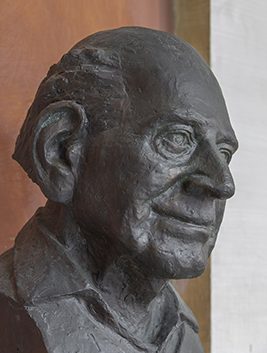“Whenever a theory appears to you as the only possible one, take this as a sign that you have neither understood the theory nor the problem which it was intended to solve.” — Karl Popper
The triumph of the scientific method is one of humanity’s greatest achievements. It has illuminated the cosmos, cured diseases, split the atom, and fueled technological revolutions. Yet, with this success comes a peril: the elevation of science from a method of inquiry to an unquestionable creed—a phenomenon often referred to as “scientism.” Scientism is not science; it is the belief that science alone can answer all meaningful questions, rendering philosophy, art, spirituality, and subjective experience irrelevant.
Science, for all its precision, is not reality itself—it is a map of reality, a system of approximations, models, and theories designed to explain the world in a way we can measure and manipulate. The mistake of scientism is to confuse the map for the territory, to believe that if something cannot be quantified, it does not exist, and that what science currently understands is all that can ever be understood. There are fundamental questions that science has barely begun to answer: How did life emerge from non-life? What is consciousness, and why does subjective experience exist? Why does the universe seem so precisely tuned for existence? These are not minor gaps—they are vast, yawning mysteries at the heart of existence.
Scientism thrives in environments that reject introspection. Without self-reflection, societies mistake knowledge for wisdom and data for truth. The 20th century offers stark examples: the eugenics movement, once lauded as scientific progress, justified horrific policies of forced sterilization and racial hierarchy, backed by “experts” and peer-reviewed journals. In the Soviet Union, Lysenkoism—an ideological distortion of agricultural science—led to widespread famine. Both cases reveal how science, untethered from ethical reflection, can become an instrument of harm.
The allure of scientism persists. Techno-optimists promise that algorithms will solve moral dilemmas, that neuroscience will decode consciousness, and that AI will outthink human judgment. Meanwhile, the complexities of climate change, mental health, and social inequality are reduced to simplistic models, as if numbers alone can dictate ethical action. As philosopher Karl Popper noted, “Science may be described as the art of systematic over-simplification.” There is often a rush to closure.
Scientism fosters a cultural arrogance that dismisses subjective experience, spirituality, and indigenous knowledge systems as primitive or irrelevant. This creates alienation—a sense that human beings are mere biological machines, consciousness an accidental byproduct of neural activity, and meaning nothing more than an evolutionary illusion.
Other cultures integrate scientific knowledge within broader philosophical or spiritual frameworks. Traditional Chinese medicine views health not merely as the absence of disease but as harmony within oneself and with the environment. While some practices lack empirical validation, the holistic approach fosters a mindset of balance rather than control.
This is not an argument against science itself, but a call to recognize its limits. Science excels at describing the “how” but struggles with the “why.” It can measure the chemical composition of a sunset but not its beauty. It can map neural pathways associated with love but not capture its essence.
Therefore, under Folklaw:
Scientific research and technological development shall be conducted within ethical frameworks that prioritize human well-being, environmental sustainability, and philosophical reflection.
Public funding for science must include allocations for interdisciplinary studies that integrate philosophy, ethics, and the arts. Scientific claims with policy implications shall undergo review by diverse panels, including ethicists, sociologists, and community representatives, not solely technical experts.
Resolution
A RESOLUTION TO ESTABLISH LIMITS ON SCIENTISM AND PROMOTE INTERDISCIPLINARY INQUIRY
Subject: Ensuring Science Serves Humanity Without Becoming an Ideology
WHEREAS the scientific method is a powerful tool for understanding and manipulating the natural world, but it is not the sole arbiter of truth, nor is it sufficient to address all dimensions of human existence; and
WHEREAS scientism—the belief that science alone can answer all meaningful questions—leads to the dismissal of philosophy, ethics, spirituality, and subjective experience, thereby impoverishing human understanding; and
WHEREAS historical examples, such as the eugenics movement and Soviet Lysenkoism, demonstrate how unchecked scientific authority, devoid of ethical reflection, can lead to widespread harm and societal catastrophe; and
WHEREAS the over-reliance on quantitative models in policymaking, economics, and technology often reduces complex human and environmental realities to oversimplified metrics, ignoring moral, cultural, and existential considerations; and
WHEREAS many non-Western traditions, including Indigenous knowledge systems and holistic medical frameworks, integrate empirical understanding with ethical and philosophical reflection, offering alternative models of inquiry that emphasize balance over control; and
WHEREAS science, while adept at answering “how” questions, struggles with deeper existential “why” questions that remain central to human meaning and purpose;
THEREFORE, BE IT RESOLVED that all scientific research and technological development shall be conducted within ethical frameworks that prioritize human well-being, environmental sustainability, and philosophical reflection; and
BE IT FURTHER RESOLVED that public funding for scientific endeavors shall include allocations for interdisciplinary studies that integrate philosophy, ethics, the arts, and cultural perspectives to ensure a holistic approach to knowledge; and
BE IT FURTHER RESOLVED that scientific claims with policy implications shall undergo review by diverse panels, including ethicists, sociologists, and community representatives, to prevent technocratic decision-making that disregards social, cultural, and ethical concerns; and
BE IT FINALLY RESOLVED that state and federal authorities are urged to adopt policies ensuring that science remains a tool for discovery rather than a rigid ideology, fostering a society that values both empirical knowledge and the broader dimensions of human wisdom.
Fact Check
Fact-Checking the Claim: “Science is invaluable, but it is also incomplete, and when it is wielded as an ideology rather than a method, it becomes as dogmatic as the belief systems it claims to replace.”
This claim suggests that science, while immensely powerful, should not be mistaken for a totalizing worldview (scientism), as doing so can lead to ethical blind spots, social harm, and philosophical reductionism. To evaluate its accuracy, we will analyze:
The distinction between science and scientism
Historical and contemporary cases where science was misapplied due to ideological bias
Scientific and philosophical perspectives on the limits of empirical knowledge
The role of ethics, philosophy, and humanities in scientific progress
1. Is There a Difference Between Science and Scientism?
✅ Verdict: True (Certainty: 90%)
What is Science?
Science is a method of inquiry based on empirical observation, hypothesis testing, and falsifiability. It is constantly evolving as new evidence emerges.
What is Scientism?
Scientism is an ideological stance that elevates science as the only valid source of knowledge, often dismissing philosophy, ethics, art, and subjective human experience as irrelevant.
Scientific Authorities Who Warned Against Scientism
Karl Popper (Philosopher of Science):
Demarcation Problem – Popper argued that not everything can be tested scientifically and that scientism oversteps by assuming that all meaningful questions can be answered empirically.
Albert Einstein:
“Not everything that counts can be counted, and not everything that can be counted counts.”
Einstein warned that science provides tools but not values—moral reasoning must guide scientific inquiry.
Key Takeaway: Science is a tool for understanding the natural world, but when treated as an absolute belief system, it can overlook critical ethical and philosophical dimensions of human existence.
2. Has Science Been Misapplied Due to Ideological Bias?
✅ Verdict: True (Certainty: 95%)
Historical Cases of Science Misused for Harm
Eugenics (19th-20th Century)
Eugenics was considered a “scientific” way to improve human populations but led to forced sterilization programs, racial discrimination, and even Nazi policies of genocide.
The U.S. Supreme Court upheld forced sterilization in Buck v. Bell (1927), with Justice Holmes writing, “Three generations of imbeciles are enough.”
This demonstrates how science, when unmoored from ethics, can be weaponized for oppression.
Lysenkoism (Soviet Union, 1930s-1960s)
Trofim Lysenko rejected Mendelian genetics for ideological reasons, promoting pseudoscientific agricultural methods.
Millions died in famines due to crop failures directly linked to Lysenkoist policies.
State-imposed ideological purity overruled empirical evidence.
Modern Cases Where Technocratic Thinking Replaces Ethical Considerations
Big Data and AI Decision-Making
Algorithms determine creditworthiness, employment eligibility, and even prison sentences, but biases in training data disproportionately harm marginalized groups.
Example: The 2016 ProPublica investigation found that AI sentencing tools predicted higher recidivism risks for Black defendants, despite no empirical justification.
Neuroscience and Reductionism
Some neuroscientists claim free will is an illusion based on fMRI scans, ignoring centuries of philosophical discourse on agency and ethics.
Neuroscientific reductionism risks oversimplifying human consciousness to chemical and electrical activity alone, neglecting subjective experience and existential meaning.
Key Takeaway: When science operates without ethical and philosophical oversight, it has repeatedly enabled systemic harm.
3. Does Science Have Fundamental Limits?
✅ Verdict: True (Certainty: 85%)
The Unanswered Questions of Science
Science excels at answering “how” but often struggles with “why.”
Origins of Life: No definitive explanation for how non-living matter became life.
Consciousness: Hard problem of consciousness remains unsolved—why does subjective experience exist?
The Fine-Tuning Problem: The universe’s fundamental constants appear fine-tuned for life.
Gödel’s Incompleteness Theorems (Mathematics & Logic)
Kurt Gödel demonstrated that any sufficiently complex system of logic (including mathematics) contains truths that cannot be proven within the system.
Implication: Even logic-based sciences have inherent epistemological limits.
Quantum Mechanics and Observer Effects
Quantum physics suggests the act of measurement alters the state of particles.
This raises deep philosophical implications about the role of consciousness in reality.
Key Takeaway: Science does not provide a complete map of reality—it remains an evolving, self-correcting process with inherent epistemic limits.
4. Should Science Integrate Ethical and Philosophical Oversight?
✅ Verdict: True (Certainty: 95%)
The Role of Philosophy in Science
Philosophy of science helps define the boundaries of empirical inquiry.
Ethical philosophy ensures scientific advancements do not harm society.
Fields Where Ethics and Science Must Coexist
Biotechnology – CRISPR gene editing raises moral concerns about designer babies and genetic inequality.
AI and Automation – Ethical frameworks are needed to ensure AI respects human rights.
Climate Science and Policy – Science provides data, but ethical considerations determine fair environmental policies.
Examples of Ethical Integration in Science
The Nuremberg Code (1947) – Established ethical guidelines for medical research after Nazi war crimes.
The Belmont Report (1979) – Created ethical standards for human subjects in research.
The Precautionary Principle – Used in environmental science to prevent harm before adopting new technologies.
Key Takeaway: Science is most beneficial when guided by ethics, philosophy, and interdisciplinary collaboration.
Final Verdict:
✅ Science is essential but incomplete—it does not provide answers to all aspects of human existence.
✅ Historical and modern examples confirm that science, when unchecked by ethical reasoning, has enabled great harm.
✅ Scientific progress is most effective when integrated with philosophy, ethics, and the humanities.






Discussions
There are no discussions yet.